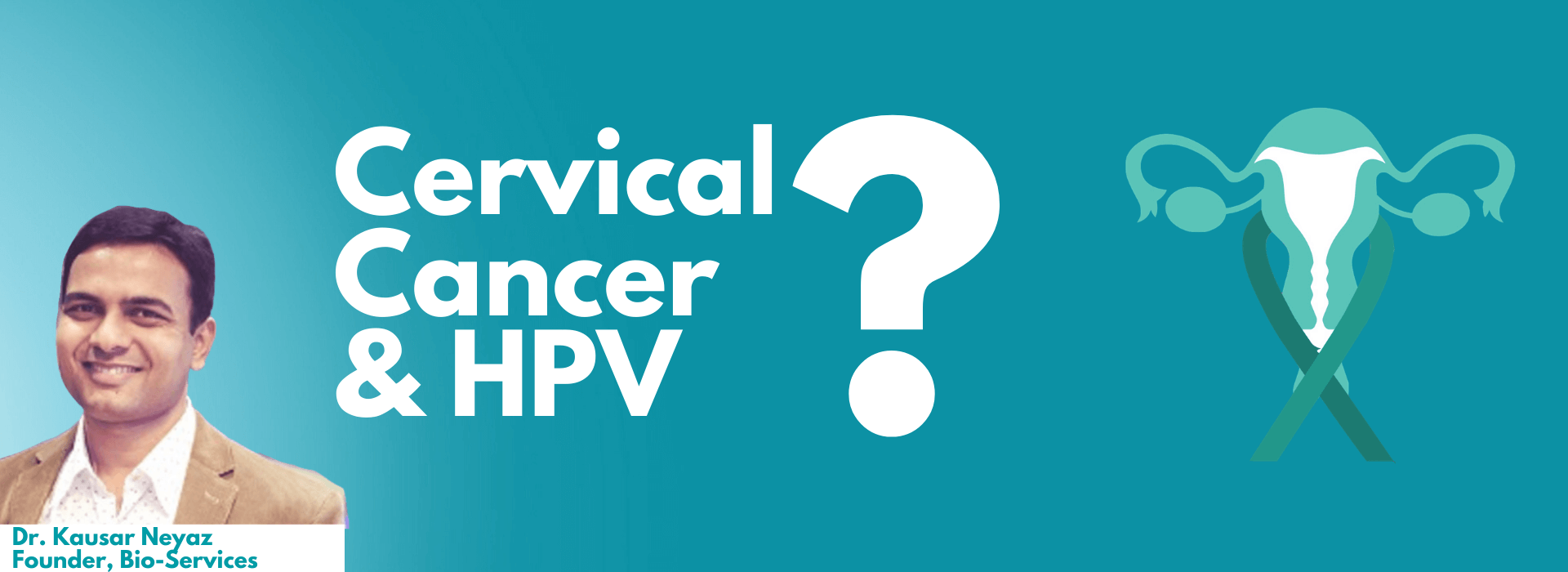
07 Jul Cervical Cancer & HPV – Guest post by Dr. Kausar Neyaz
I am Kausar, a research scientist and Founder of Bio-Services, a web based scientific knowledge portal that helps create awareness about common and preventable diseases in women and girls.
One of the most common preventable diseases in women and girls is cervical cancer. Persistent and undiagnosed HPV infection is mainly responsible for cervical cancer. Prevention of cervical cancer should ideally involve a multi-pronged approach of education, awareness, advocacy, public-private partnerships for HPV vaccination, screening and early treatment of precancerous lesions before they develop into cancer. Cervical cancer can be prevented by performing a simple test called the Pap smear test. The Pap smear is a simple and painless test, performed in girls or women above 21 years of age and should be repeated once every 3 years. If this test is combined with the HPV DNA test (recommended for women above 30 years of age), then the duration of screening can be increased to 5 years.
One of the many questions that is often asked about cervical cancer is, whether men can get it? The answer to this is: NO, men cannot get cervical cancer because cervical cancer is “cancer of the cervix” and men don’t have a cervix.
“Cancer” a disease that is associated with the kind of physical and emotional suffering that most of us don’t want to think about it. Unfortunately, we have to because in case of cancer, our thoughts and awareness can go a long way in saving our loved ones.
HPV Infection in sexually active men is not a cause for major concern although in rare cases it has been found to be associated with oral, anal or penis cancer. However according to recent scientific evidence, oropharyngeal cancer is common in men and HPV is one of the potential causative agents. HPV related cancer in men can be prevented by vaccination and it should be initiated in young boys in the age group of 9 to 14 years. A follow up vaccination schedule of up to 26 years of age is also recommended. The recommended/standard dosage schedule for age group 9-14 years is 2 doses at least 6 months apart; interval between doses should not be greater than 12-15 months. In case of age group 15-26 years, the requirement is 3 doses.
CAPED (Cancer Awareness, Prevention and Early Detection) Trust has been continuously and proactively engaged in creating cervical cancer awareness since 2014 and I feel incredibly priviledged to be part of it. I would like to thank Mridu, CEO -CAPED for choosing Bio-Services as their knowledge partner. It is our duty as their knowledge partner that in the time of an infodemic we come up with precise and scientifically correct information with the help of our expert panelists.
– Dr. Kausar Neyaz
Founder, Bio-Services


